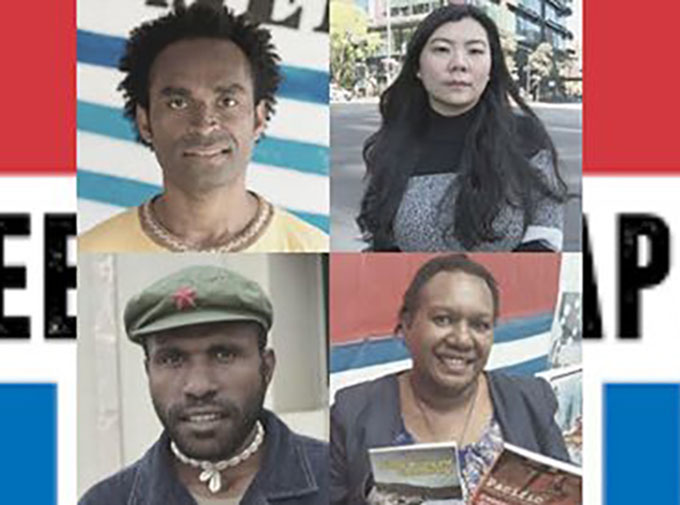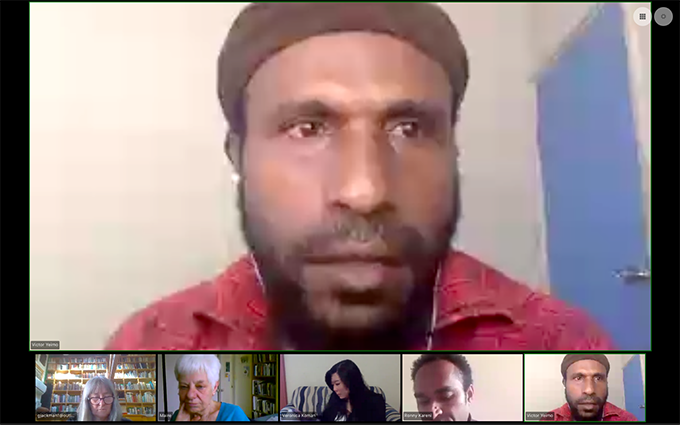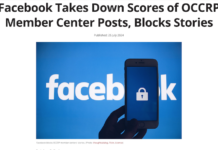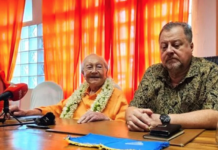
Pacfic Media Watch Newsdesk
West Papuan activists and an Indonesian human rights lawyer criticised the recent military crackdown on the two Melanesian provinces of Papua and West Papua in a New Zealand-hosted webinar at the weekend.
“The Indonesian government is trying to prevent an uprising like last year, when the uprising was against racism and self-determination – that’s what is happening on the ground,” exiled lawyer Veronica Koman said.
She also highlighted some of the findings from the recent report from the London-based Indonesian human rights group TAPOL, West Papua Uprising 2019, and said people wanted the truth.
The report says that more than 40,000 indigenous people of West Papuan have been displaced due to military crackdown. And more than 300 people have died.
West Papua Uprising also reveals that some of the people were allegedly killed by the Indonesian military, some died from malnutrition, and others from illness in the refugee villages.
Koman said that the number of victims recorded in the report was less than the actual number.
The crisis, particularly in the Nduga and Intan Jaya regions, is now a major concern since a third pastor has been killed, said Victor Yeimo, the international spokesperson for Komite Nasional Papua Barat (KNPB), a civil resistance organisation that mobilises and advocates for West Papua’s right to self-determination on independence.
The other webinar speaker was Ronny Kareni, a West Papuan musician and activist, and a community engagement youth worker based in Australia. The #PapuanLivesMatter webinar was moderated by former Green MP Catherine Delahunty and the discussion unfolded on her birthday yesterday.
International campaigns
The West Papuan Action Auckland group hosted the webinar on the topic of the current political situation, the opposition to “special autonomy” plans by Indonesia, and campaigns to free West Papua on the ground and internationally.
In the opening session, Delahunty explained that information discussed during the webinar would be used for the political education of Aotearoa New Zealand and local politicians who were “very slow” in taking up the West Papuan human rights and independence issue.
“Now, as most of you know, the situation in West Papua has been extremely serious for many, many years and continues to be a huge problem. And the importance of this solidarity movement across the world cannot be underestimated,” Delahunty said.

Victor Yeimo said the recent killing of a Catholic catechist in Intan Jaya hadadded more unrest for the indigenous people of West Papua.
“In the last three months we have seen that the Indonesian military has shot our pastor and also a Catholic catechist,” he said.
Opposition to ‘special autonomy’
Kareni, Koman and Yeimo said that the Indonesian-imposed new “special autonomy” status was not the solution to the aspirations of the indigenous people of West Papua.
Most Papuans rejected the Special Autonomy law and wanted a referendum on independence.
“As of today, there are 90 organisations that have joined or signed the petition for the referendum. Webinars, seminars and press statements are continuing day by day to reject the extension of the special autonomy in West Papua,” Yeimo said.
Koman said that the special autonomy was part of Indonesia’s colonialist practice towards the indigenous people of West Papua.
“Special autonomy has been used by Indonesia to whitewash colonialism, and colonialism remains a weapon … this is exactly what Indonesia is creating, class war among West Papuan elites against grassroots,” Koman said.
Kareni said that the special autonomy status was used as a campaign by the Indonesian government.
The government always used it as their propaganda in international forums by saying that the people of West Papua were given full rights to rule themselves through the special autonomy law, so what Papuans needed was more development, he said.
“In its 10 years of ‘special autonomy’, the people of West Papua rejected it and also made a big announcement that it has failed, and now we are into two decades of it. And now [Indonesian government] wants to extend it further.
Massive impact on the people
“It is just to continue [with] their bigger interest [over] the economic foreign investment in the region and it will have a massive impact on the dignity, the land, and as well environment and every issue that we are talking about today.”
Although Koman and Yeimo are “most wanted” people by the Indonesian government, they are still consistently active and remarkably risk their lives in campaigning for self-determination for the people of West Papua.
Koman highlighted the result of her advocacy work disseminating information – her life is at risk in Indonesia.
Despite facing this risk, she keeps advocating the issue at international level.
“I have a personal mission. Why I focus on disseminating information on West Papua is because I came from there,” he said.
“I used to be very nationalistic person and it was because I didn’t know anything about West Papua. And I believe that my fellow Indonesians just don’t know what is happening, that is why I think West Papua doesn’t need any propaganda.
“People just need the truth about what happening in West Papua,” she said.
Victor Yeimo and Veronica Koman both said that the solidarity movement to West Papua in Indonesia was growing stronger.
“It is also happening across the world,” Kareni said.
The webinar panel called on the people of Aotearoa New Zealand, people in the Pacific, and others across the world to join the West Papuan solidarity struggle.
This article has been contributed by a postgraduate student journalist from Auckland University of Technology.












































